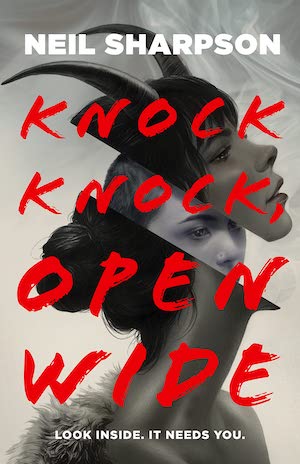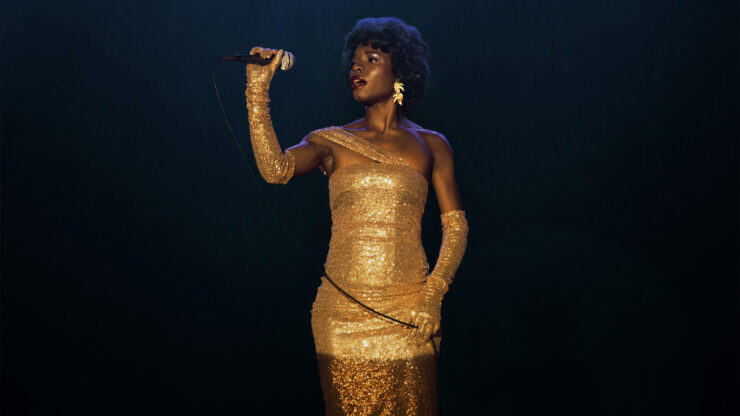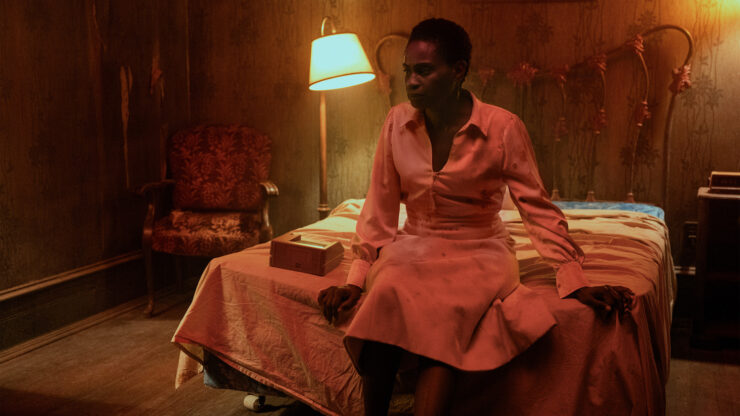It seems that Apollo and Emma aren’t the only characters in The Changeling to be contending with fairy tales. Lillian, Apollo’s mother, lived through one of her own that turned out to be just as dark and frightening as theirs. Let’s take a ride with Lillian Kagwa through her fever dreams and waking nightmares.
In a previous review, I talked about how fairy tales often push women out of their own stories to center men. Cinderella’s story about independence and self-discovery becomes about a prince’s obsession and the wake of amputated body parts he leaves behind him. Whatever Snow White’s dreams or desires are, we never learn them. Her entire story is about being chased by her evil stepmother and being rescued by men, including a prince who takes what he wants and makes all her decisions for her. Sleeping Beauty marries the prince who wakes her from a cursed sleep, but only after he forces himself on her and makes her bear his children. Lillian got her fairy tale when she fled her home from a terrible evil and found a new life with a handsome prince. However, she learned first hand that “happily ever after” is not real, not when the foundation of a relationship is built entirely upon red flags.
In the sixth episode, the last thing Emma said to Wheels was for him to put his mother out of her misery and let her know he’s still alive. In the seventh episode, we see that in action with Lillian. Her son has disappeared, an event that tosses her back to the time when she almost lost him for good as a child. Tormented by worry, she descends into her memories. The events of the late 1970s and early 1980s blend together with the present (the show is set in 2015) like overlapping ripples on the surface of a pond.
Buy the Book


Knock Knock Open Wide
Lillian was so desperate for the American dream—and so traumatized by her escape from her homeland and the subsequent slaughter of her entire family—that she raised her son without any connection to his Ugandan culture. “Apollo, I never made you mandazis. Why? Because I wanted you to like regular American kid food. I wanted you to fit in. Your mac and cheese diet, your hotdogs, your white bread PBJs. But I made them with love.” From what I can tell, Apollo moves through the world as an American, not a first generation child of an immigrant. He doesn’t seem to know his mother’s first language, her customs or traditions, and certainly not the food. She made choices she thought were right at the time, both about enmeshing him in her dream of “America” and the lies she told him about his father.
When you dig down into it, the American dream is about whiteness. A white picket fence in the suburbs… but the first suburbs were intentionally developed as whites-only enclaves. A nuclear family… but the criminal justice policies specifically target Black and brown people, intentionally destroying family units and pushing people toward crime. Work hard enough and you’ll succeed… but we punish poverty as a moral failing by cutting social services and pushing Black and brown children down the school-to-prison pipeline. Anyone can bootstrap their way up the social ladder… but this country was built on the notion that some (cisallohet white) people are entitled to more than their fair share and that some people (BIPOC, disabled, queer, women) even deserve to have their rights taken away or ignored. Lillian played into the American dream by marrying a white man. He offered her everything she wanted but instead gave her nothing but pain. The American dream is, as she discovered in an act of cold-blooded violence, a fallacy.
As with Emma’s episodes, none of this trip down Lillian Lane is in the novel. Author Victor LaValle gave readers the highlights such as how badly their marriage deteriorated, what Apollo’s dream of the blue faceless man represented, and how it connected to the choices Lillian made. Script writer Kelly Marcel took those bits and pieces and gave the character a fully fleshed out life. If this episode doesn’t earn actor Adina Porter an Emmy nomination, we might as well shut the whole award down.

This episode in particular makes me so glad I stuck with the show. The first three episodes left me a little frustrated in terms of how closely the show was adhering to the original novel, but gradually each subsequent hour had strayed farther and farther away by adding entirely new stories. Viewers who are frustrated by these tangents will continue to be, but the rest of us were given a gift by Marcel and Porter. If I were being cynical, I’d say Marcel is only doing these character expansion episodes because she committed to making an ongoing series rather than doing the whole book in a single 8 or 10 episode season. However, these extra episodes have given me as a viewer more than enough intrigue and thrill to justify their existence.
A small thing, but I don’t love how limited the queer and trans representation has been so far, especially on North Brother Island. The show is so heavily focused on cis women and cis men, to the point where I think some of the themes are diluted. The Western world bends toward the desires of cis men, cisallohet white men specifically, and they don’t wield that power just over cisallohet women. The rest of us—queer people, people elsewhere on or outside of the gender spectrum—are also subject to the whims of their entitlement, and oftentimes our intersectional marginalized identities can make us more vulnerable than cisallohet women. It feels like a missed opportunity more than intentional erasure, but I was expecting more from a show like this.
Two other stray thoughts before I wrap this up. First, Ane Crabtree’s costume design has been on fire this season, but especially in this episode. Lillian’s nightclub performer dress shifting the way it fit as she dips in and out of her past was so clever. Given what we know about Brian, we can see the parallels between him and Emma’s relationship with regard to their relationships with one of their parents. But Lillian and Emma also share similarities when it comes to what they’ll do to protect themselves and their children. Like Emma, Lillian is also dressed in white. As a young woman, she wears a skimpy white dress just as Emma did in Brazil. As an older woman she wears a dark coat over a bloodstained shirt and skirt, just as Emma does when she turns toward sorcery.
Second, I’m pretty sure that was William Wheeler in the Elk Hotel abusing the sex worker. This man is a different creature from the William Wheeler of the book. There he felt more like an incel with too much power while here he seems to be playing the part of the evil stepmother or wicked queen. He pops up everywhere and everywhen. Is it really William Wheeler? Is he possessed by something? I hope we’ll find out next week with the finale.
Alex Brown is a Hugo-nominated and Ignyte award-winning critic who writes about speculative fiction, librarianship, and Black history. Find them on twitter (@QueenOfRats), bluesky (@bookjockeyalex), instagram (@bookjockeyalex), and their blog (bookjockeyalex.com).










